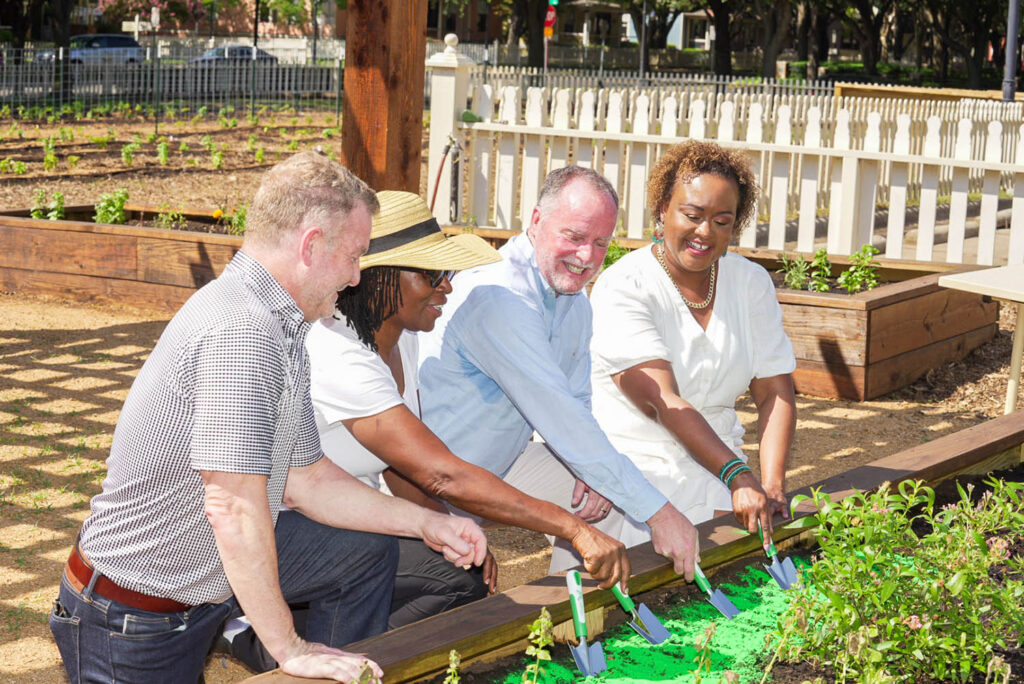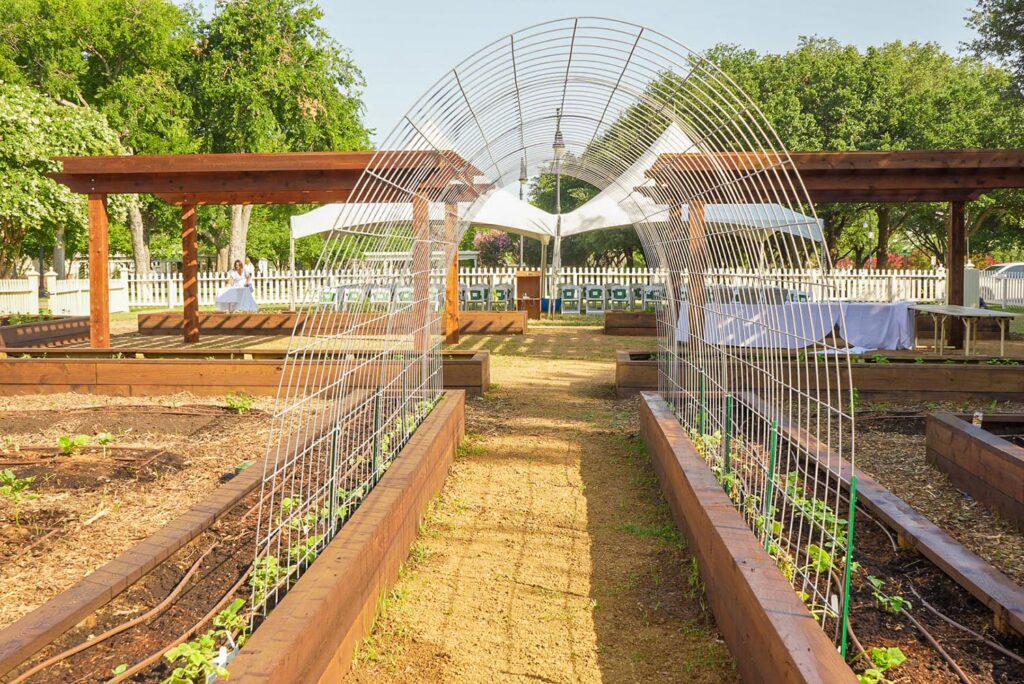Story by Bora Laci. Photos provided by Minerva Consulting.
Liberty Street Garden grows specialty produce sold across the city, but that is not all it is growing– it also blooms opportunity as it provides survivors of human trafficking a means to earn a living wage as they build a new life.

The driving forces behind this remarkable endeavor are Bianca Davis, the CEO of New Friends New Life (NFNL), and Peter Miller, President of The Meadows Foundation. At Dallas Doing Good, we sat down with them to gain insights into the inspiration, goals, and profound impact of this transformative project.
Gardens often hold deep symbolic meaning, and Liberty Street Garden is no exception. Peter explains that the garden symbolizes therapeutic healing for survivors who work in it daily. It serves as a place of healing and growth, mirroring the journey of a plant from being planted in the dirt to sprouting into a new life.
The need stems from barriers that women who have been trafficked face– they often become trapped in a cycle of exploitation because of a lack of stable income. For women leaving trafficking, finding employment can be difficult due to a variety of factors, such as minimal education, limited to no conventional work experience, and a criminal record.
In turn, Liberty Street Garden provides a solution by offering employment to members of the New Friends New Life’s Women’s Program. They qualify to serve as employees, where benefits include earning a sustainable living wage, working in a trauma-informed environment, opportunities for growth and promotion, building a resume, and receiving support from an economic empowerment team, staff attorneys, clinicians, and case managers. It is a holistic approach that addresses and supports women as they work to regain their independence and autonomy in life.
The Liberty Street Garden project is a testament to the power of collaboration and community-driven initiatives. It was inspired by Bonton Farm’s successful model in Dallas, which brought people together and served as a beacon of hope. For The Meadows Foundation, whose mission is to serve the people of Texas, supporting this project was a natural extension of their commitment to community service.
When the project embarked on its journey, the primary goals and objectives were clear. It aimed to bring an innovative idea to the Wilson Historic District, fostering collaboration with tenants in a unique way. As Bianca explains, the project’s purpose extended beyond cultivating plants; it was about helping survivors of trafficking heal and ultimately find work.
Community involvement is often the key to the success of such projects. Liberty Street Garden quickly became a focal point in the neighborhood. As Peter highlights, similar projects have thrived in other parts of the city, making it an obvious choice to replicate the success in the district. The community embraced the garden, recognizing its potential to change lives.

Like any ambitious project, Liberty Street Garden faced its share of challenges. From changing locations to finding new partners, the journey was far from straightforward. However, Bianca says these challenges are part of what makes such projects better and more resilient. The garden has evolved and will continue to grow in the future.
Looking ahead, both Bianca and Peter share a vision of a garden with limitless potential. For NFNL, it’s a bridge to employment opportunities and a place of healing for survivors. Peter envisions the garden as a long-term investment, fostering substantial personal growth for the women who work there.
To delve deeper into the inspiring journey of Liberty Street Garden, discover how it’s making a difference in the lives of survivors and the community, and find ways to volunteer or get involved, you can visit the Liberty Street Garden page on New Friends New Life’s website.
Sign up with your email address to receive good stories, events, and volunteer opportunities in your inbox.